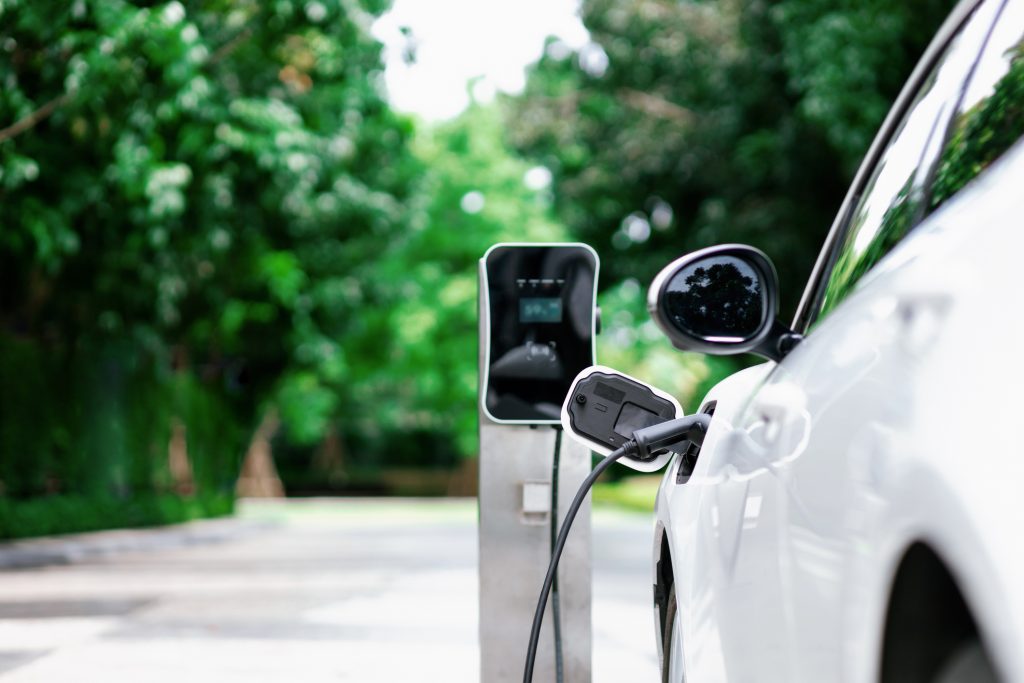Testimony Before The Arkansas House Committee on State Agencies and Governmental Affairs on House Bill 1683 Regarding the State Procurement of Electric Vehicles Containing Materials Procured By Forced Labor
Heartland Impact
April 2, 2025
Chairman Gazaway, and Members of the Committee,
Thank you for holding a hearing on House Bill 1683, legislation intended to prohibit the state procurement of electric vehicles that have been, in any part, manufactured with forced or child labor. My name is Samantha Vick, and I am a Senior State Government Relations Manager at Heartland Impact.
Heartland Impact is the advocacy and outreach arm of the Heartland Institute. Both are independent, national, and nonprofit organizations working to discover, develop, and promote free-market solutions to social and economic problems. Heartland Impact specializes in providing state lawmakers the policy and advocacy resources to advance free-market policies towards broad-based economic prosperity.
To understand this issue, we must first understand what rare earth metals are. Despite the name, they are not rare in their abundance but rather found in low concentrations meaning that their low concentrations make them much more difficult to acquire than other metals and even more difficult to separate from each other and from the ores in which they occur.
That means that the circumstances surrounding rare earth metals create extreme difficulty in mining and refining them that present real-world problems related to environmental damage, sustainability, and the labor used to procure such labor-intensive products.
The mining and refining of these metals is most frequently done at the hands of forced labor, in the worst cases, among children by Uyghurs and other Muslim minorities in China’s Xinjiang region and the children of the Democratic Republic of the Congo.
At this time, China has a dominant hold on the market with 60 percent of global production and 85 percent of processing capacity. Furthermore, according to the International Trade Administration, the Democratic Republic of the Congo was the world’s largest cobalt mine in 2020 with a production of 95,000 tons, nearly 41 percent of the world’s cobalt. It is universally understood that the cobalt ore mined from the Democratic Republic of the Congo is obtained through the use of exploitative child labor in dangerous mining conditions.
Concerns about the use of forced labor to create components and parts of electric vehicles prompted the federal government, with bipartisan support, to pass the Uyghur Forced Labor Prevention Act (UFLPA).
The UFLPA directs the Forced Labor Enforcement Task Force to develop a strategy for supporting the enforcement of the prohibition on the importation of goods into the United States manufactured wholly or in part with forced labor, particularly from the Xinjiang Uygur Autonomous Region.
Furthermore, the federal government recently restricted the application of its newly created tax credits for EVs, so that: “Beginning in 2024, an eligible clean vehicle may not contain any battery components that are manufactured by a foreign entity of concern and beginning in 2025 an eligible clean vehicle may not contain any critical minerals that were extracted, processed, or recycled by a foreign entity of concern.”
While these destinations seem so very far from Arkansas, these issues are very real and present for us. While our actions to resolve these problems are limited, we can start here at home. By prohibiting the procurement of EVs and prohibiting government contracts from procuring EVs that may have been made through forced labor we are following suit with federal guidelines and using the power of Arkansas’s purse, and the power of state contracts, to lead with a clear conscience.
The policy proposed by HB 1683 is not overly complicated. It would simply require that any electric vehicle manufacturer provide a sworn certification that certifies that no entity involved in the production of the EV or components for sale used forced labor or child labor through its procurement.
As we have seen in recent weeks, economic stipulations that nudge manufacturers and consumers into decisions can be very effective. Last week, Hyundai Motor Group announced a $21 billion U.S. Investment as the threat of tariffs loomed.
The forces of the free-market can, and will, absolutely mold around legislation such as this, and market competitors will have no trouble adhering to simple stipulations that could save the lives of people and children as well as incentivize domestic and North American production.
We have already seen companies such as Tesla, Ford, and Rivian increasingly adopt lithium-iron-phosphate (LFP) batteries as opposed to the nickel manganese cobalt (NMC) batteries that are commonly used. LFP batteries are made without the use of any ethically questionable cobalt and are also known for their safety, affordability, and improved lifespan.
At the end of the day, there is no price too high for the prevention of child or slave labor, and Arkansas has an opportunity to be a leader in the abolition of forced labor and child
slavery wherever it exists. Through this policy, you can ensure that Arkansas taxpayer dollars are not being used to pay for electric vehicles that, even partially, use oppressive forced and child labor in their manufacturing process. All states can, and should, fight for religious liberty in Communist countries in what is now an interconnected world.
Thank you for your time and consideration.


